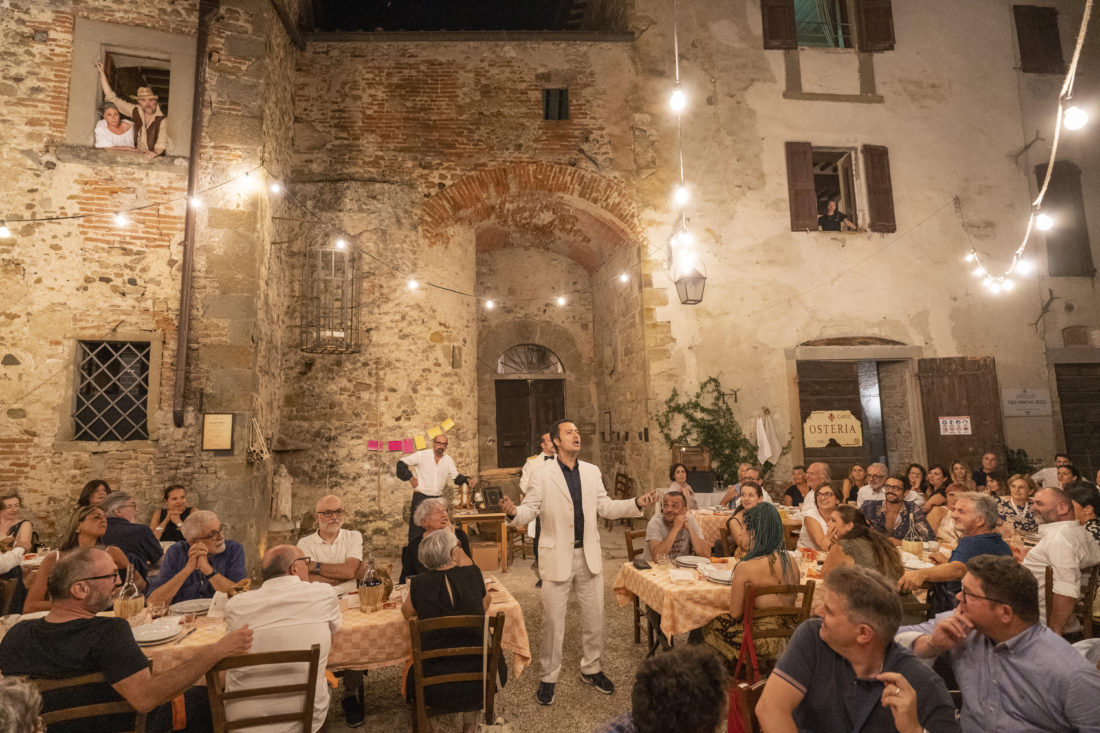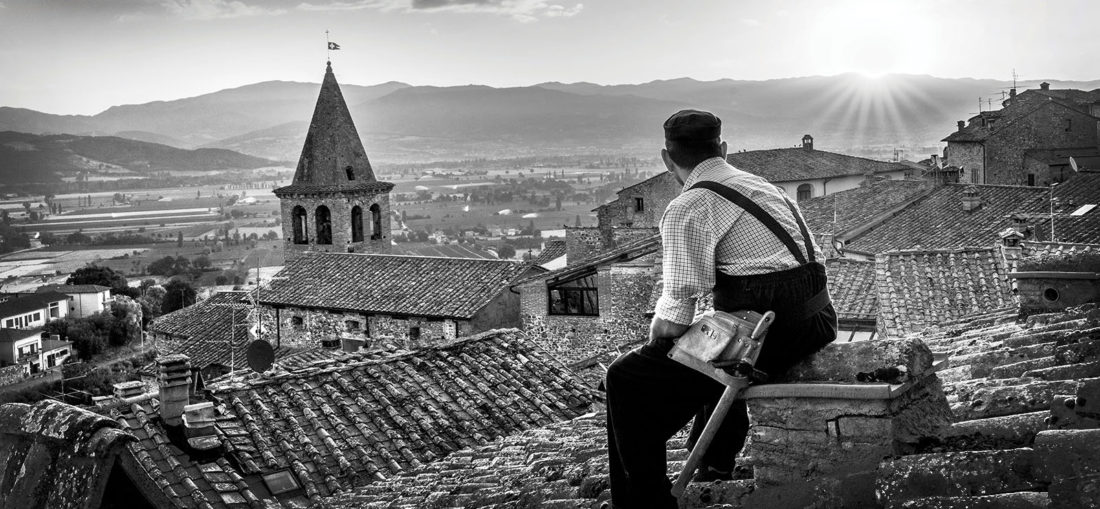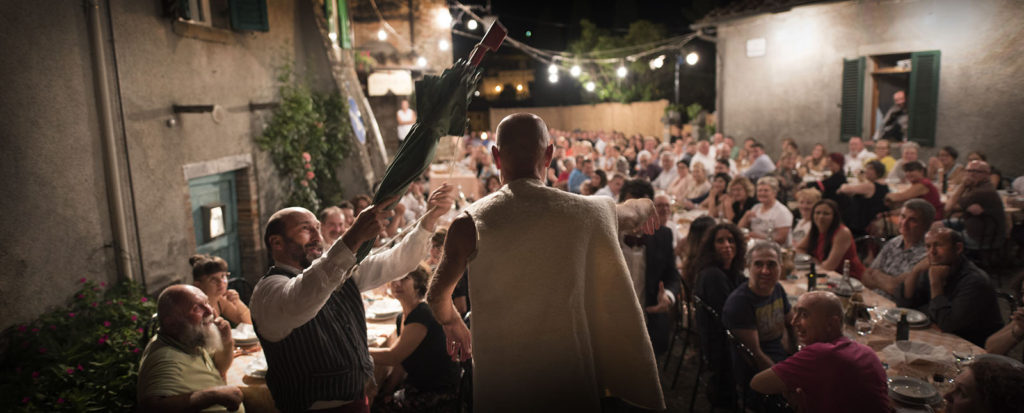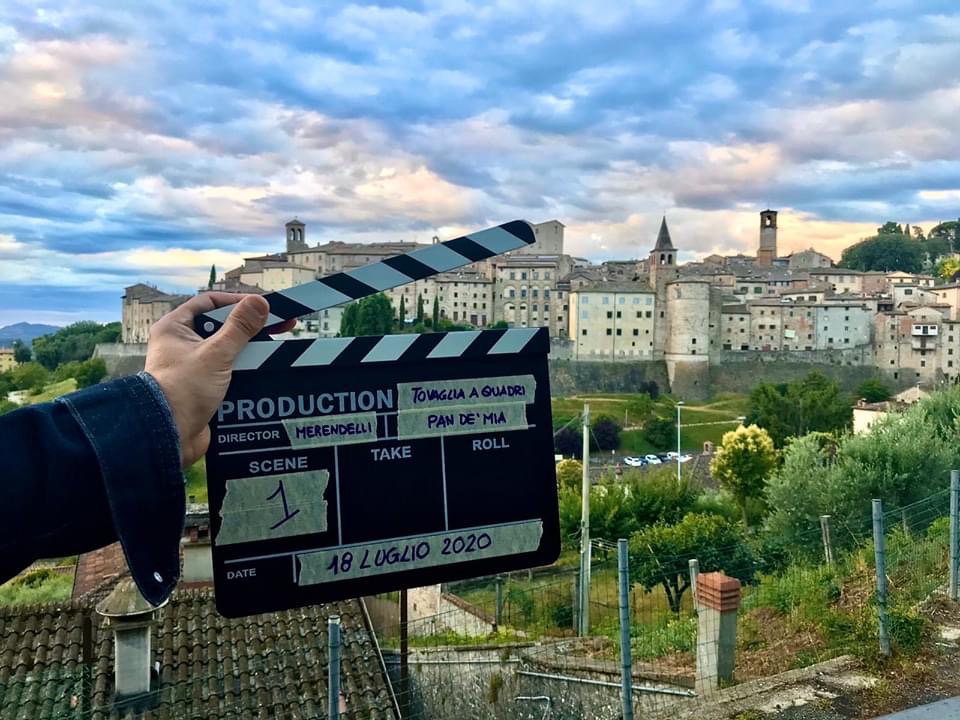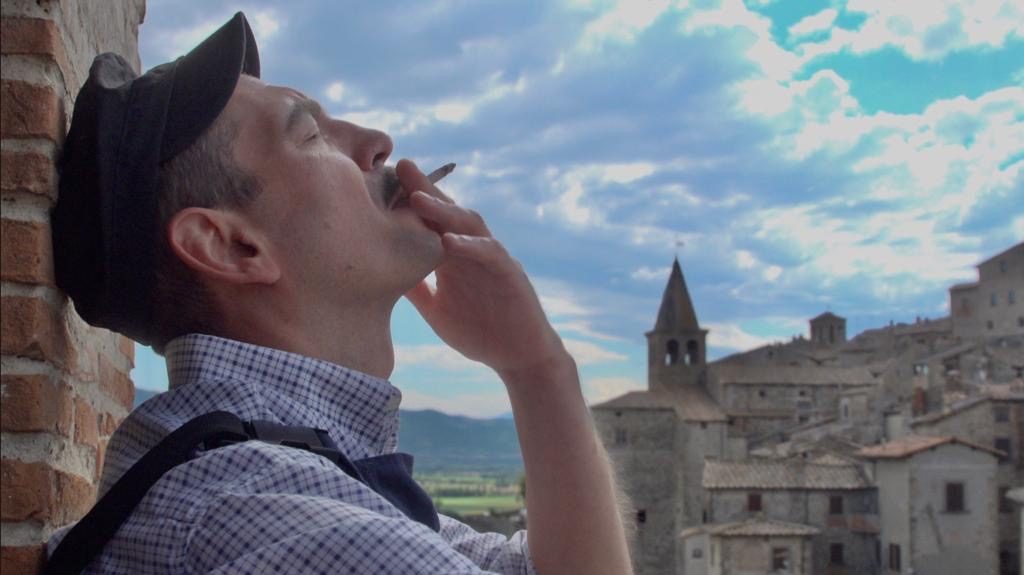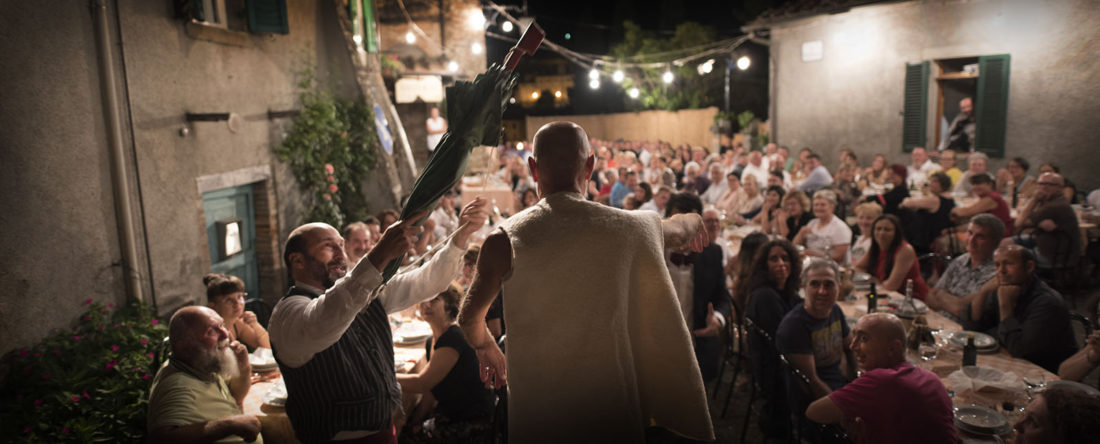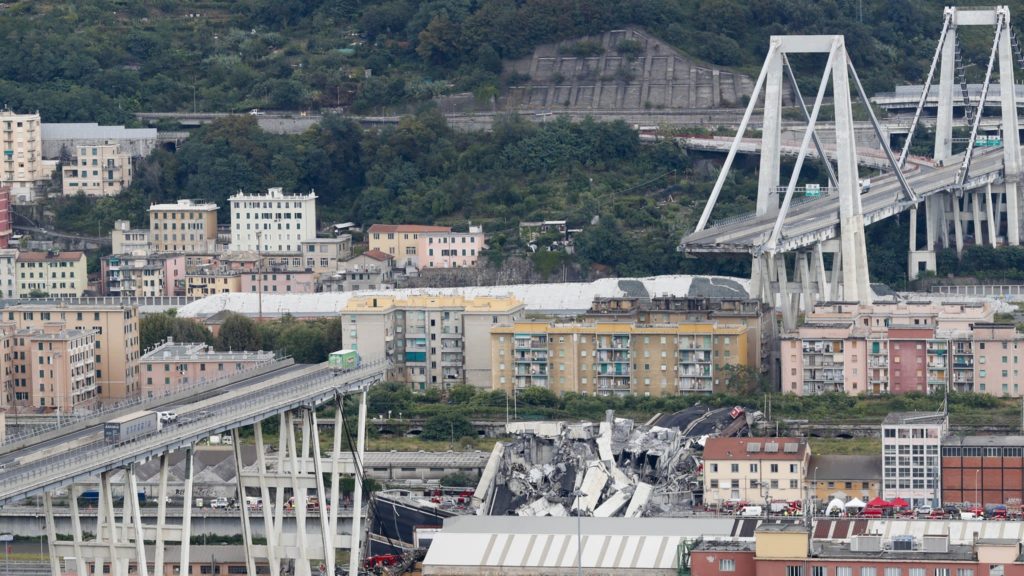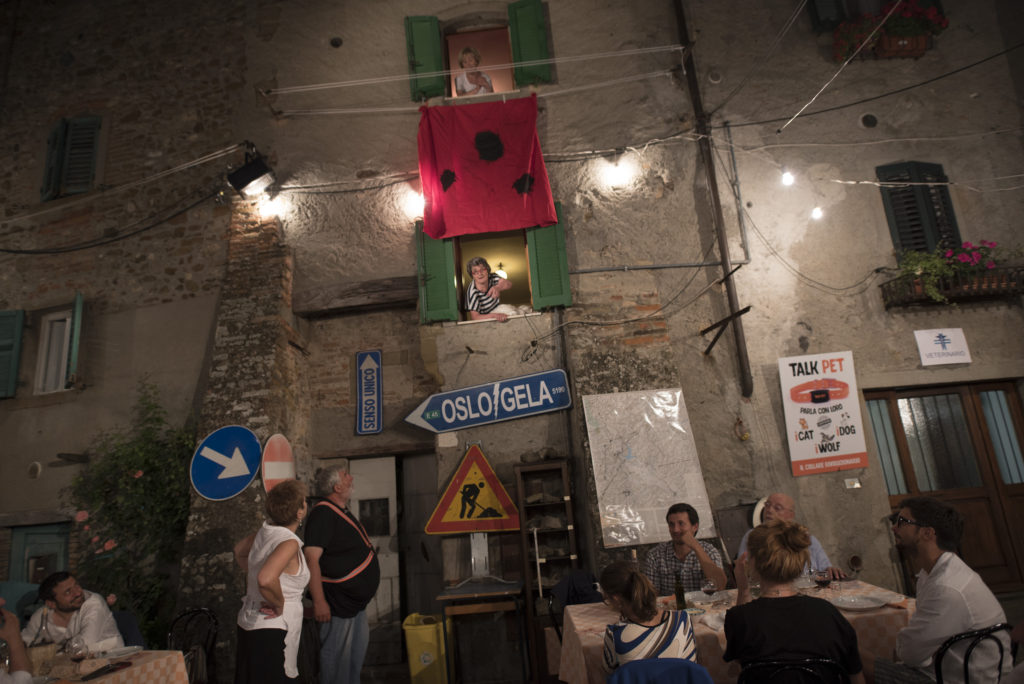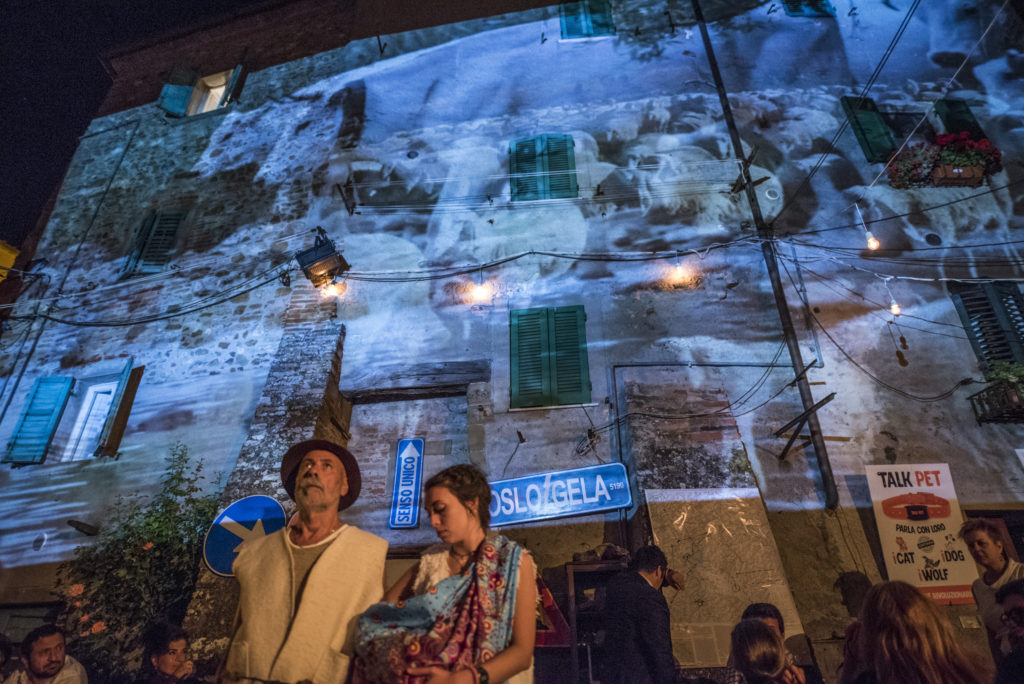The ties that bind us
The echoes of WWII are all around us here. The war is not an abstract thing—I have a friend who found a bomb in the woods when he was a kid and he and his brother were thinking of hitting it with a large stick before they decided to show it to their parents. The bomb removal experts came and said it was unexploded, and if they had pounded on it they would likely both be dead. Occasionally, a discussion with one of the oldest members of the village will disclose a great wrong done during the war to their family by another family in the village. The shadows are everywhere, including which coffee bars and grocery stores people frequent; some bars are known to be more fascist or communist. I know people who will not shop at the Co-op grocery store as it is owned by the communist party.
This year’s village play, Tovaglia a Quadri, picked up on some of these themes. When, and how, is it appropriate to make our way back into society after having been a refugee hiding away—or in quarantine; how do people create a plan for the future after a catastrophe; and what role do elections, and politicians play (or don’t play) in such times? The performance, as I’ve covered before—go to Itch.world and search Tovaglia a Quadri for other editions—is a witty, sardonic look at events in the village and nation, always freshly written a few weeks before it’s performed. The thread that united the series of vignettes this year was the importance of the links between people that tie us all together—and how to find it again and restore it. The title of the play, Filocrazia, alludes to the power of the invisible ropes, or cables (a filo), that bind us to one another, and to a place.
The play is usually staged in a tiny square in the village, but due to Covid restrictions they had to move the location for the first time to an old castle a kilometer or two out of town and stage the play in its larger courtyard. This castle, which is now a popular place for a pizza or a large gathering for Sunday lunch, is on a site that dates back to pagan times, but the present structure was built in 1234 and passed from one powerful family to another. It was the summer home of a famous nobleman and soldier from the 1400s, Baldaccio Bruni, who was murdered in Florence in the Palazzo Vecchio by another Florentine noble family who was concerned about his growing power. His body was thrown out the window, dragged through the streets, and then beheaded in the Piazza della Signoria. His ghost is said to haunt this castle, which actually seems possible when you go down in the dungeons at night. Considering what happened to him I think he has every reason to be a ghost.
The castle had a rich history during WWII as well. It was the German headquarters, into which an Allied pilot, who was shot down, accidentally parachuted.
The site informed the play as it featured a group of refugees who have moved to the castle in the countryside to hide from an undisclosed great danger. They think the danger has now largely passed but are split into factions between those who are eager to return and take up the old ways, those who want to remain sequestered, and those who want to use this opportunity to reinvent and improve their community.
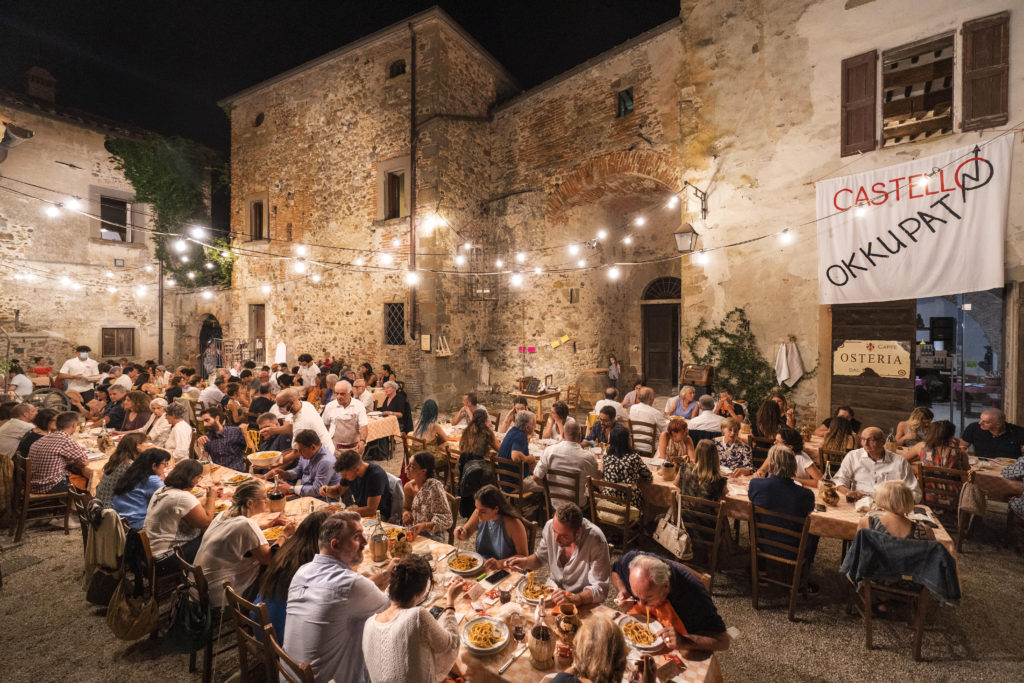
The play took place during the runup to the election for mayor in the village and the playwrights couldn’t resist adding a bit current political commentary. Two candidates come to the castle to campaign during this pivotal moment for change, one from the right and one from the left. One is dressed in white and one in black, but they are indistinguishable in every way—they say exactly the same dialogue to the same people, making the same promises. The pilot who parachuted into the castle makes an appearance, as well as a philosopher who comes to help clarify matters, holding a large book called The Book of the Future. It turns out all the pages are blank. A particularly fitting symbol for our current situation—the future is always unknown, but right now it is more unknown than usual. The conclusion of the play, which I profoundly agree with, is that only our ties to each other will get us through and allow us to move forward.
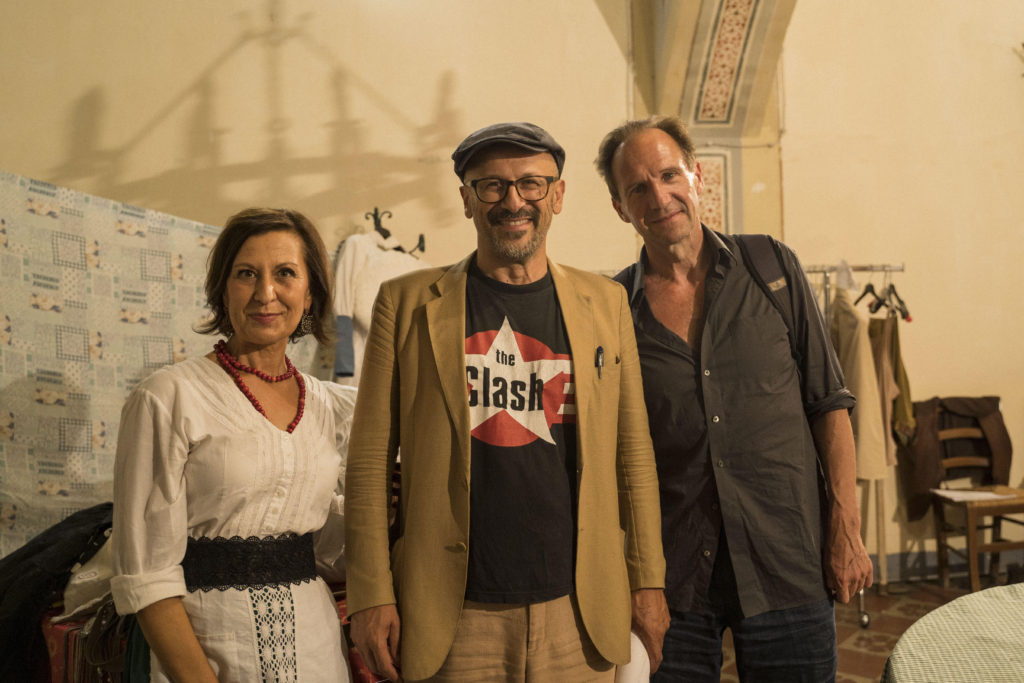
This year’s audience included Ralph Fiennes, right, with director and playwright Andrea Merendelli.
On the topic of the echoes of WWII John and I finally stopped in the lovely hilltop town of Lucignano, between Arezzo and Siena. We went to a little square for lunch and I noticed an interesting inscription on the wall. I am always trying to decipher signs, but this one was particularly intriguing.
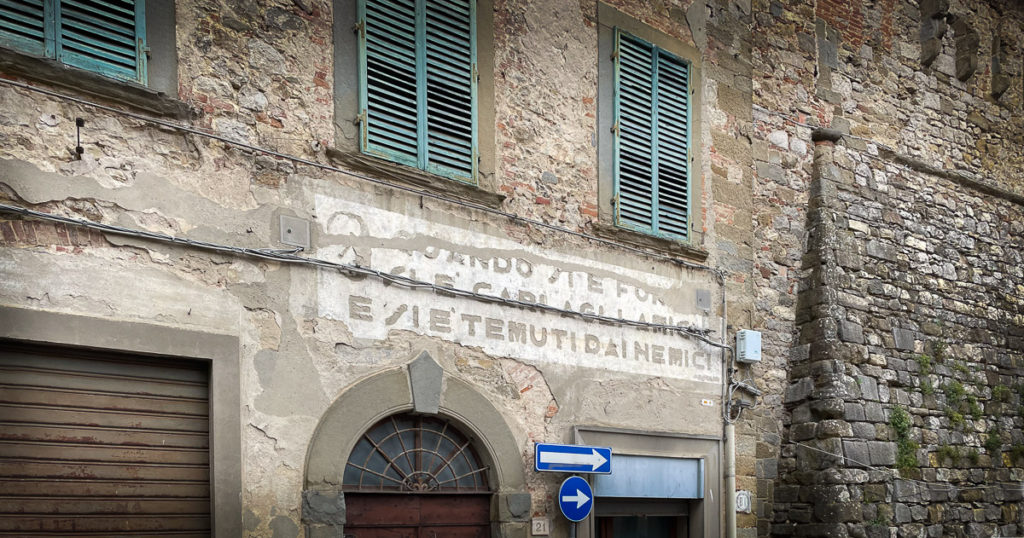
“QUANDO SI È FORTI SI È CARI AGLI AMICI E SI È TEMUTI DAI NEMICI.” “When you are strong you are dear to your friends and feared by enemies,” is a quote from Mussolini from March 26, 1939 during a celebration of the twentieth anniversary of fascism. I was intrigued so I investigated and found that this phrase is thrown around even now. In October 2020, when Italy briefly opened gyms during one of the waves of Covid, the anti-fascist journalist Paolo Berizzi, whose work uncovering neo-fascists has forced him to live under the protection of security for over a year, managed to anger almost everyone with a single Tweet. “Robust support from the center right in defence of gyms. ‘When you are strong you are dear to your friends and feared by enemies.'” This linkage of gyms to political extremism went too far, according to one person who responded “This tweet, frankly, does no honor to anyone, neither to you, nor to anti-fascism. You know that I often love to talk to you, so I think I can afford it: it really fell down …”
That’s it for now from the village.


